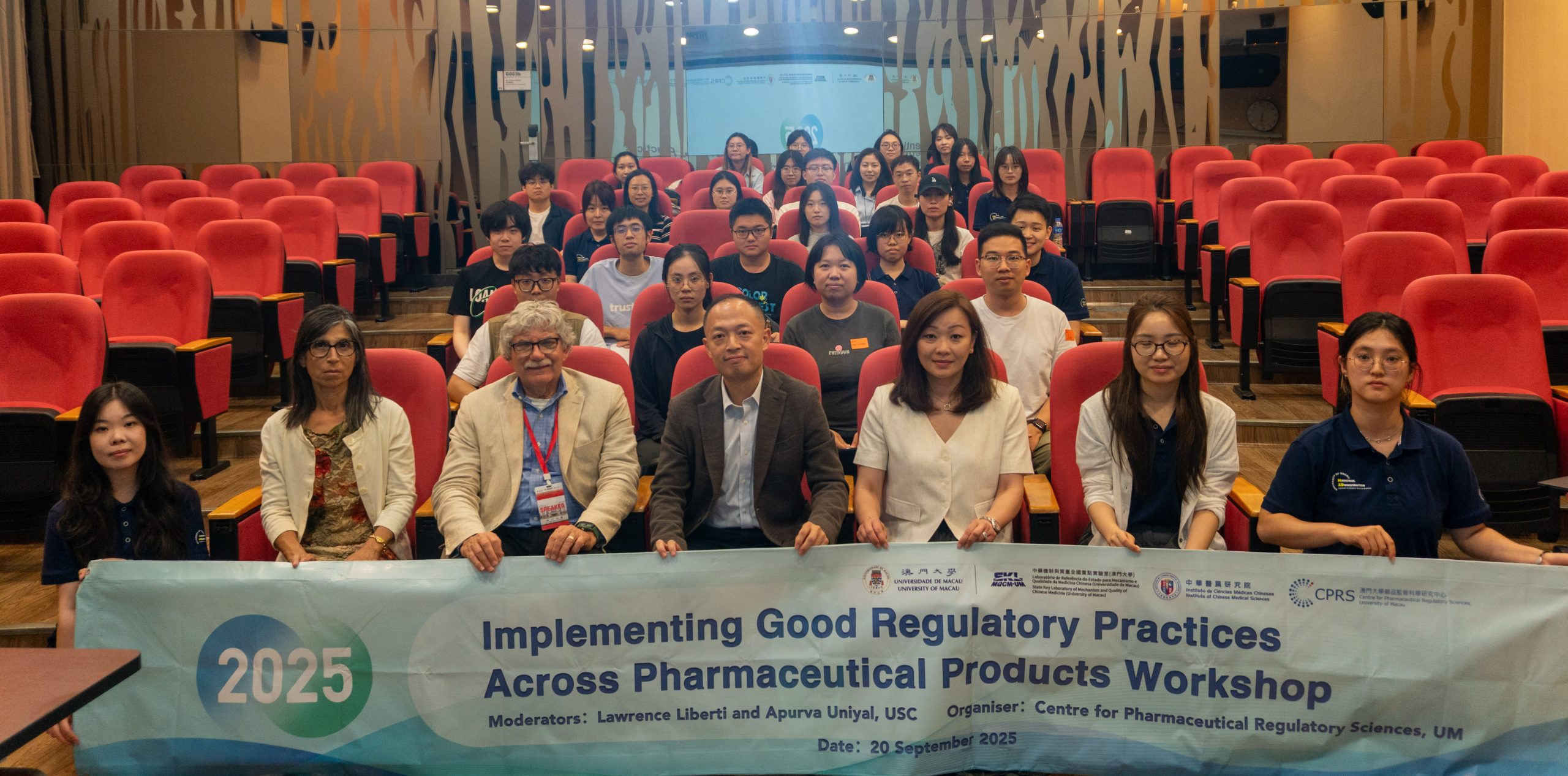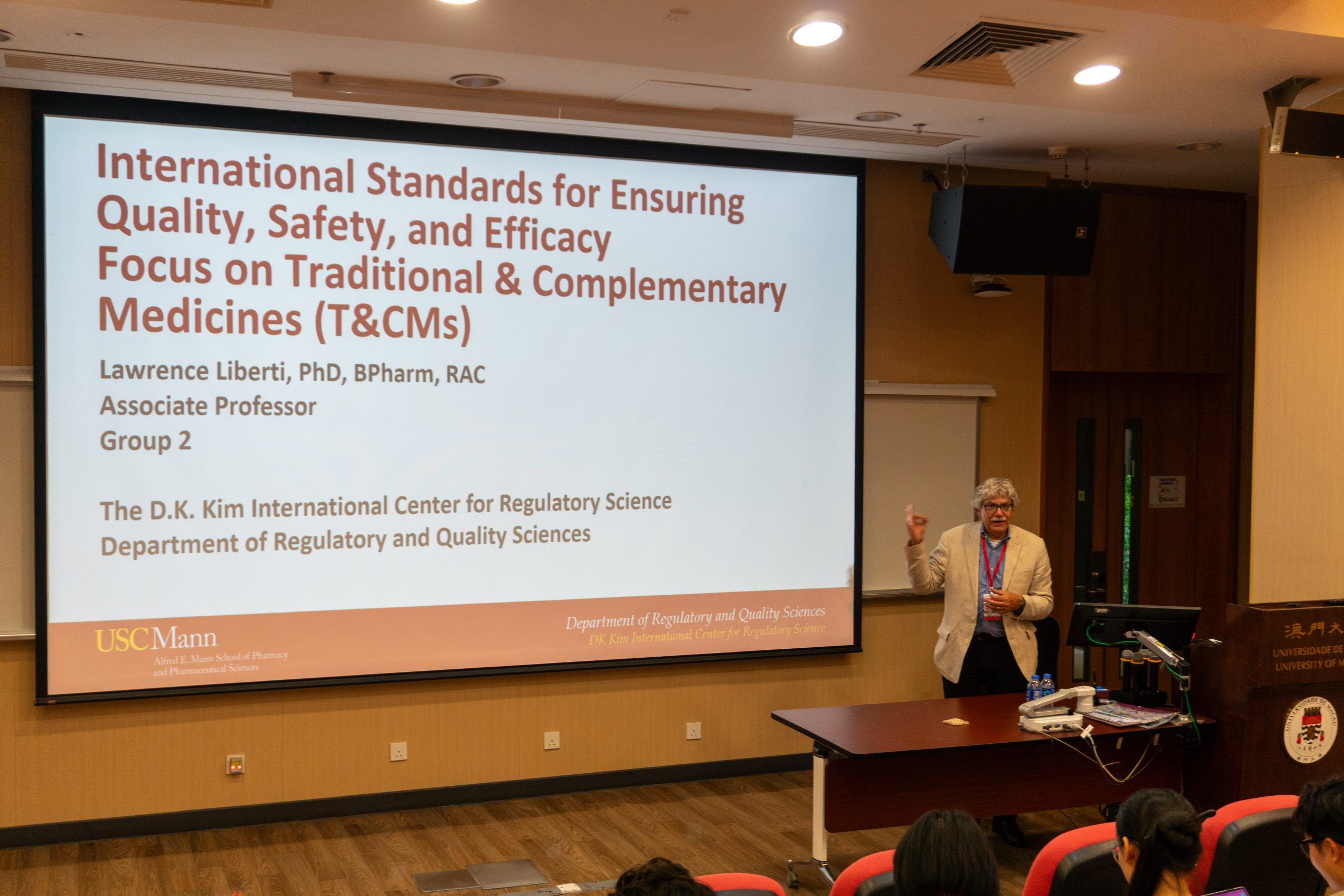The workshop ‘Implementing Good Regulatory Practices Across Pharmaceutical Products’, hosted by the Institute of Chinese Medical Sciences (ICMS) and organised by the Centre for Pharmaceutical Regulatory Sciences (CPRS) at the University of Macau (UM), was held at UM on 20 September. The workshop focused on the application of Good Regulatory Practices (GRP) and Real-World Data (RWD) in Traditional Chinese Medicine (TCM) and global pharmaceuticals, aiming to deepen students’ understanding of international regulatory frameworks, cross-border coordination and evidence assessment. The event drew strong participation from UM students in medicinal administration programmes, with lively and enthusiastic exchanges throughout.
The workshop opened with remarks by Prof. Yuanjia Hu, Professor at ICMS and Director of CPRS, and Dr Lawrence Liberti, Director of the D. K. Kim International Center for Regulatory Science at the University of Southern California (USC). Speaking from local and international perspectives, they underscored the critical role of GRP in safeguarding product quality, efficacy and safety.
The subsequent breakout discussions adopted a case study format, with participants joining one of two themed groups for hands-on work and interactive exchange. Group 1 was moderated by Ms Apurva Uniyal, which focused on the practical implementation of international standards, using case studies to show how such standards enhance the quality, safety and efficacy of TCM and global medicines, and to identify opportunities for cross-border collaboration and harmonisation. Group 2 was moderated by Prof Lawrence Liberti, which examined case studies on the successful integration of real-world data (RWD) into the assessment of efficacy and effectiveness for TCM and global medicines, identified current evidence gaps, and explored coordinated pathways and approaches to achieve regulatory acceptance of efficacy evidence.
In the subsequent “Rapporteur Presentations” session, the two rapporteur teams delivered consolidated reports on their respective topics, presenting key outcomes and recommendations to attendees; the session drew an enthusiastic response.
In closing, Director Yuanjia Hu remarked that the workshop’s problem-driven, case-analysis approach strengthened students’ practical understanding of GRP and RWD, while providing an actionable pathway for dialogue between Traditional Chinese Medicine and the international regulatory community. He added that the Centre will continue to deepen collaboration with international institutions, advance education and research in regulatory science, and cultivate interdisciplinary talent to serve the development of the regional and global biopharmaceutical industries.



